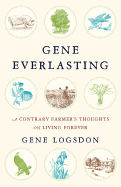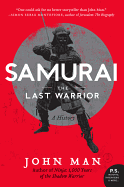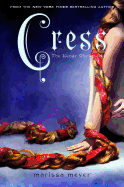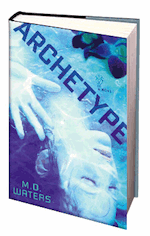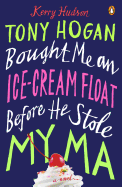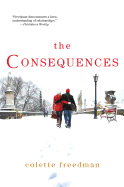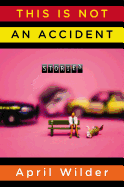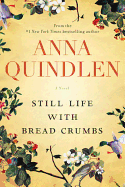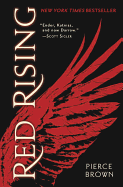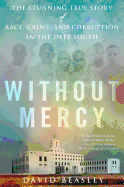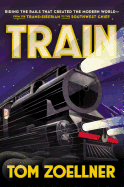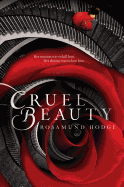Tuesday, February 4, 2014
The tradition of Super Bowl advertising has grown to be almost as big as the game itself, with 30-second spots selling for nearly $4 million. Now that the game is over and this year's ads have been graded, here are a few books that take on life in advertising and the people and agencies who have created some of the most talked-about moments in television history:
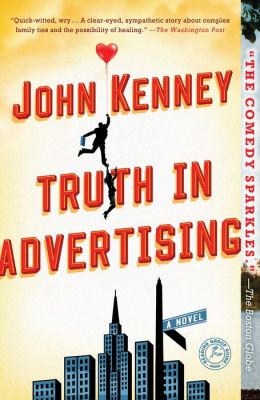
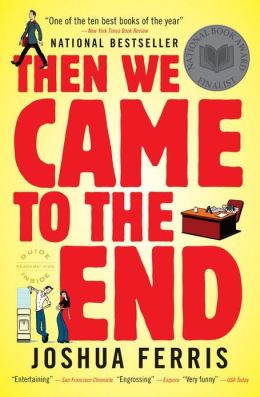

Archetype
by M.D. Waters
An intriguing genre fusion, Archetype is mystery, science fiction and romance rolled into one, and signifies the start of a suspenseful new series by debut author M.D. Waters. When Emma awakens in a hospital, she has no memory of who she is. Her handsome and attentive husband, Declan Burke, is an ideal Prince Charming: a sensitive listener, seductive in the bedroom and fabulously wealthy. As Emma learns more about her husband and the world she lives in, she simultaneously experiences flashbacks that tell a very different story from the one Declan is telling her. Soon Emma finds herself struggling to make sense of her memories, of her past life, and whether she is actually married to someone else entirely--a man who is now intent upon killing her.
The setting of Archetype is a futuristic dystopia, a North America torn asunder in a bitter civil war between the totalitarian East and the rebellious West. Medical technologies have advanced to do what was once thought impossible, and teleportation is a mode of transport. Luxurious conveniences whisper and whisk about the rooms to make life effortlessly comfortable for the wealthy. Declan is even able to gift Emma with an artist's dream--a studio that uses holographic technology to take on the appearance of any setting in the world she might wish to paint.
It is, moreover, a world that echoes Margaret Atwood's The Handmaid's Tale, resulting from the combined effects of a shortage of females and a decrease in women's fertility, turning fecund women into a prized commodity. Most women are infertile and therefore assigned jobs suited to their inferior status, and are destined to perpetual singlehood. Meanwhile, in order to exploit the value of fertile women, girls in the East are placed in "Women's Training Camps" (WTCs) to prepare them for marriage, obedience and childbearing; they are subsequently sold to the highest bidder. Birth control and abortion are illegal--a fact that looms threateningly over Emma even in the midst of her marital bliss. Some inner voice is whispering to her that having a baby with Declan would be a bad idea--that he is a bad idea.
But who is the mysterious woman in her thoughts? Why does "She"--as Emma calls her--keep showing Emma images of a beach, of combat, of a brutal murder in a WTC? As the book progresses and Emma witnesses more and more "memories" that come together like the pieces of a puzzle, she faces an increasingly urgent dilemma: whether to stay in a marriage that seems perfect, or risk all by attempting to find out the truth.
The title Archetype has a double meaning in this narrative: there is on the one hand the science fiction meaning of the term, which is revealed at the end, when Emma discovers the root of her identity. On the other hand, the title can also refer to the archetype that the sinister Dr. Travista, the technological wizard behind the mystery, is attempting to create in Emma--that of Virginia Woolf's "Angel in the House," the perfect wife. The Women's Training Camps begin the work that Dr. Travista attempts to complete in Emma, encouraging only "feminine" qualities such as domestic contentment, subservience, the desire for children and--above all--total reliance upon her husband. Anything that might make Emma independent is inherently threatening--she lives under what is essentially house arrest. Any time she shows signs of rebelling against these conditions, she is returned to the hospital for treatments and tests. That she has no idea what is being done to her, and at first has no memories of anything that took place months before, makes the situation all the more macabre.
In contrast, the "She" of Emma's flashbacks is an experienced fighter, ruthlessly independent even when in love, and given to biting irony. Thus Emma finds herself torn between the archetype she is being conditioned to become, and the compelling voice of a strong woman--and she has no idea which is real.
Elements of romance come into play early on, when Emma experiences all the bloom of first love with Declan, her husband, as she regains consciousness. The conflict between the two women within her--the obedient wife and the fighter--is exemplified in two men, Declan and Noah Tucker; she believes the latter might have been her true husband all along. A suspenseful plot drives Emma's emotional conflict and sexual tension with these two men, though it is not as simple as choosing between them: while Declan loves Emma and wishes to be married to her, Noah may never have been her husband at all. How can Emma give up a perfect life, married to a devoted and wealthy man, for the sake of a life that may have never been hers and is surely gone? --Ilana Teitelbaum
Tony Hogan Bought Me an Ice-Cream Float Before He Stole My Ma
by Kerry Hudson
Janie Ryan is born with all the elements of a tough life: poverty, an absent father, a home in the roughest part of Aberdeen, Scotland, and a young, rebellious mother who runs from one dangerous person to another. Eventually, one of these people sticks around Janie's life for too long, threatening to weaken the tight bond between fiery mother and hyper-observant daughter. So begins Kerry Hudson's first novel, Tony Hogan Bought Me an Ice-Cream Float Before He Stole My Ma.
Despite their bleak circumstances, the Ryans' lives are never without crass jokes and heated opinions. Iris is a mother readers will gawk at and root for as she trudges repeatedly through abusive relationships, drug use, drug selling and squandered state support. What ultimately makes her likable is her refusal to be pitied. Even her vicious temper can be strangely uplifting, as though her willingness to fight is the one thing that assures us she will somehow make it as a mother. On the day of her daughter's birth, she snaps at a nurse: "My lassie can cry as long as she wants tae, anyway, it was probably yer ugly mug that set her off!"
Hudson was born in Aberdeen, and the detail with which she describes the region and its people breathes familiarity into every landlord or chip shop owner. To those unfamiliar with Scottish slang, the quips and expressions add a punchiness to even the most serious dialogue. --Annie Atherton
Discover: With hope and a biting sense of humor, a young mother struggles to raise her daughter in a tough corner of Scotland.
The Consequences
by Colette Freedman
In The Consequences, the sequel to 2013's The Affair, Colette Freedman picks through the bloody aftermath of a discovered liaison. There are three players--the wife, the husband and the mistress--and each has a chance to tell his or her side of the story.
When we last left this dysfunctional trio, they were reeling from a humiliating confrontation as Kathy affirmed her love for her cheating husband, Robert; he insisted he wanted her back; and the devastated mistress, Stephanie, took the high road, agreeing to give Robert up. For many readers, the story could simply end there, but Freedman takes it a step further.
As Richard and Kathy struggle to rebuild a marriage where there is no trust, Stephanie learns she is pregnant. This proves to be the making (and undoing) of all of them. Freedman fleshes out her characters thoroughly, giving readers a chance to identify with each one. There are no villains here... and no angels, either.
What's so refreshing about The Consequences is that Freedman doesn't pigeonhole Kathy as a pampered ice queen or Stephanie as a calculating slut. Both are fine women who've made mistakes; both are portrayed sympathetically (though the lonely, anxiety-ridden Robert gets shorter shrift as he struggles to do what's right). Just deserts will be served before the tale's shocking conclusion, leaving readers in suspense as they puzzle over which woman Robert will ultimately choose. --Natalie Papailiou, author of blog MILF: Mother I'd Like to Friend
Discover: Freedman's insightful and honest sequel to The Affair addresses what happens after the truth comes out... and new complications arise.
This Is Not an Accident
by April Wilder
In the first story of April Wilder's This Is Not an Accident, a nervous young woman doesn't have an accident. In fact, she's so preoccupied by the fact that she hasn't had a car accident that she finds herself compulsively driving four hours to Iowa just to be sure she didn't have an accident on her first trip. She blacks out, then comes to hours later, combing the shoulder of the highway for evidence of the accident she's almost sure she didn't have.
Other stories in this collection feature a man in the midst of a divorce who, stood up by his soon-to-be-ex-wife, ends the evening triumphantly devouring a raw steak in front of an angry, horrified master chef, and a woman who wins an argument and loses her boyfriend at a tailgate party as a giant roast pig looks on. At first, Wilder's stories seem to have a dystopian edge. The remedial driver's education that compels the first character to endless commuting, for example, hints at Orwellian doublespeak and Kafkaesque bureaucracy. Nevertheless, it quickly becomes clear This Is Not an Accident is far from futuristic. Wilder's characters are on the edge of everyday breakdowns, fighting the eternal absurdity of marriage, traffic and other familiar hells. Almost all of them are appealingly sympathetic, making Wilder's view of the world amused rather than bitter. These are odd stories that resist the urge to become fantastical, because Wilder understands that life is strange enough as it is. --Emma Page, bookseller at Island Books, Mercer Island, Wash.
Discover: A debut collection of funny, strange short stories that embrace everyday absurdity.
The Swiss Affair
by Emylia Hall
Emylia Hall's The Swiss Affair is part romance, part coming-of-age tale. Hadley Dunn hasn't had a very exciting life, but that all changes when the 19-year-old literature student decides to study abroad in Lausanne, Switzerland, for a year. Hadley is amazed by all she sees in Lausanne, and quickly comes to love the city for its physical beauty and its stories evocative of Hemingway's novels. She becomes close friends with Kristina, a Danish girl who lives next to her in the student housing, and thinks she might be falling in love with her tutor, Joel Wilson.
Hall's (The Book of Summers) central themes of love and connection are grounded by the novel's strong sense of place. Lausanne is more than just the setting; it's like another character. Hadley's relationships with Kristina, Joel and Lausanne change and grow as the months go by.
Life in Lausanne is fresh and exciting for Hadley--until an unimaginable tragedy occurs.
Hadley's determination to find the answers--both in her own life, and in Kristina's life--make her doggedly likable. She refuses to give up and is unafraid to seek out the truth, even at the cost of her own happiness. The Swiss Affair is an appealing love story with an even more alluring setting. --Jessica Howard, blogger at Quirky Bookworm
Discover: British novelist Emylia Hall (The Book of Summers) tells a young American woman's story of love and coming-of-age in Lausanne, Switzerland.
Still Life with Bread Crumbs
by Anna Quindlen
Still Life with Breadcrumbs, Anna Quindlen's seventh novel, is an enjoyable read that explores the themes of aging, the capricious nature of fame and the relationship between art and identity--all in the guise of a romance.
At 60, Rebecca Winter, once famous for a series of black-and-white photos that captured quotidian domesticity, is facing a stark reversal of fortune. She is now divorced, with a negligible bank account balance and all-but-vanished art sales, while still supporting an aging mother. She sublets her sprawling pre-war Manhattan apartment and rents a run-down cabin in the country. When she calls local roofer Jim Bates with an emergency, she becomes drawn into the town and its characters, and the stage for romance is set.
Of course, there are obstacles: Jim is 20 years her junior and responsible for his manic-depressive sister. The two have profound cultural differences, as well, including Jim's belief that Rebecca's new series of photographs of locally found objects is exploitative.
Some of the novel's secondary characters are limited in their emotional range and can seem one-dimensional, but Quindlen tells her story with warmth, humor and particularly close social observations. Still Life with Bread Crumbs adds the comfort of a popular story line to a consideration of the arbitrary material value of fame and art--and the importance of a deeply lived life. --Jeanette Zwart, freelance writer and reviewer
Discover: Pulitzer Prize-winning Quindlen's seventh novel is a life-affirming and often very funny love story.
Science Fiction & Fantasy
Red Rising
by Pierce Brown
Any contemporary dystopian science fiction novel will inevitably draw comparisons to The Hunger Games or Divergent, but Pierce Brown's Red Rising fully deserves to stand beside them. It's a bone-crunching story of revenge, full of clever plot twists and characters worth rooting for.
Darrow is a young miner on a terraformed Mars, married to the beautiful and ethereal Eo. Life as a miner is brutal and short; the mines are worked by the Reds, who are ruled by the Golds--genetically and socially engineered brutes who kill those beneath them for the slightest infraction. Darrow and Eo end up on the wrong side of this equation with tragic results, setting off a labyrinthine journey of revenge.
Each scene comes alive as Brown captures the emotions of lost love and the yearning for something greater. The scenes of Darrow's genetic manipulation as he is transformed into a Gold are harrowing, and his constant struggle for survival--during which he seems in as much danger of losing pieces of his soul as his life--is reminiscent of the Battle School in Ender's Game. Like Hunger Games, Brown's vision of a criminally stratified future society offers a commentary on our contemporary excesses of materialism and youth worship. Red Rising is the rare book that delivers everything it promises; it deserves all the hype. --Donald Powell, freelance writer
Discover: A debut novelist gives Suzanne Collins and Veronica Roth stiff competition with his gripping tale of revenge and class warfare in a dystopian future.
Biography & Memoir
Gene Everlasting: A Contrary Farmer's Thoughts on Living Forever
by Gene Logsdon
As anyone who has lived on a farm can attest, one is closer to life and death when dealing with nature and animals on a daily basis. The poetic prose of Gene Logsdon's Gene Everlasting, a reflection on life as an Ohio farmer, brings readers into that close connection of beginnings and endings, the inner, always-turning circle of chores, natural discoveries and seasonal work.
Logsdon (A Sanctuary of Trees) blends careful observations of the natural world with sometimes humorous, often melancholic contemplations that gently lead the reader to ponder such topics as the death of a beloved pet, the mysterious nature of cemeteries, the number of suicides in any given year, butchering hogs, buzzards in the backyard and the sudden uptick in backyard farms and gardens. He expertly intertwines these seemingly disconnected subjects with the cyclic qualities of nature and the overall sense that life and death are forever paired--that one cannot and should not exist without the other, thereby removing the fear of death.
Logsdon also eloquently reveals early childhood memories and his fears of the meaning of everlasting hell, his acceptance of his mother's untimely death and his own need to confront death when diagnosed with cancer. The culminating effect is not morbid, but philosophical and absorbing, like a musical fugue that builds and recedes, gracefully moving toward an acceptance and understanding of what living and dying truly mean. --Lee E. Cart, freelance writer and book reviewer
Discover: Ruminations on nature, life and dying from the creator of the "Contrary Farmer" blog.
History
Samurai: The Last Warrior
by John Man
John Man combines travelogue, history and social commentary in Samurai: The Last Warrior, using the story of Saigo Takamori, popularly known as the "last samurai," as a central focus. In 1877, Saigo led a hopeless rebellion against the Japanese government. Armed with traditional sword and bow, 600 samurai fought the newly trained Japanese army in an effort to reverse the Westernizing changes of the Meiji Restoration. When all was lost, Saigo committed ritual suicide; the institution of the samurai died with him. Three years after Saigo's death, the government against which he rebelled erected a monument honoring him as a great patriot.
Man (Ninja: 1,000 Years of the Shadow Warrior) uses Saigo's story to consider the history of the samurai, Japan's rapid transformation from a feudal society to a modern one and the ways in which samurai culture continues to color Japanese society. He offers detailed explanations of both familiar elements of samurai culture, such as ritual suicide, and less familiar subjects, such as formalized sexual relationships between men. Man himself is never far from the page, whether comparing traditional samurai education with that of a British public schoolboy, visiting a class where a toned-down version of samurai-style sword fighting is taught, discussing the samurai in the context of other cultural ideals of honor or explaining Darth Vader's samurai roots.
Samurai is an engaging look at the final days of a military elite. --Pamela Toler, blogging at History in the Margins
Discover: Man tells The Last Samurai--without Tom Cruise--and reveals the deep influences these warriors had on Japanese culture.
Without Mercy: The Stunning True Story of Race, Crime and Corruption in the Deep South
by David Beasley
Georgia was so desperate to dig its way out of poverty and destitution in the 1930s that it elected E.D. Rivers as governor because he supported FDR's New Deal. What the state got, however, was a Klansman whose corruption and racism knew no bounds. David Beasley's fastidiously researched Without Mercy tells the story of a justice system that was anything but just.
Georgia set a record on December 9, 1938, when it executed six black men in 81 minutes; for some of them, the entire process from arrest to electric chair took less than three months. As Beasley recounts their crimes, he also provides details of the murder convictions of white men during the same period. The stark contrast between their trials, appeals and sentences is fodder for a horror story. Beasley also highlights additional levels of corruption in Rivers's Georgia by examining the prisons and chain gangs, the Ku Klux Klan's infiltration of the state government and the buying and selling of pardons.
Beasley provides a "Cast of Characters" at the onset, but his meticulous treatment of each person makes Without Mercy easy to follow. Much like a nightmare or a heart-pounding action movie, this is a story one doesn't easily forget. Without Mercy is history, but its shadows and echoes are still very much alive today in the unsettling and eye-opening reality of capital punishment. --Jen Forbus of Jen's Book Thoughts
Discover: A terrifying study of how lopsided the justice system can be while still technically maintaining the letter of the law.
Train: Riding the Rails That Created the Modern World--from the Trans-Siberian to the Southwest Chief
by Tom Zoellner
Tom Zoellner has written an eclectic mix of books on topics ranging from diamonds and uranium to the shooting of congresswoman Gabrielle Giffords. In Train, he tackles the history and allure of locomotives, what he considers to be the world's first "true machine ever put on wide public display."
"America is a nation of lost train dreams," Zoellner writes. "Some perceive them as nostalgic playthings," but he fervently believes that trains also serve "unromantic needs and unyielding economies." He documents the impact of the locomotive as an "underappreciated marvel" that has modernized societies across the globe, offering solutions to issues of trade, traffic and energy.
Zoellner shares his personal train experiences (mostly riding long-distance rail lines) and offers fascinating stories of people he meets in his travels. He's journeyed through Britain, the birthplace of the steam engine, crossing from the north of Scotland to the southwestern corner in Cornwall; from New Delhi to Varanasi in India; New York to Los Angeles, including passage on the Amtrak Southwest Chief; the longest train route, the Trans-Siberian Railway in Russia; the highest railway, on the Tibetan Plateau in China; and "a corkscrewing path through the Andes" in Peru. His adventures conclude in Spain, riding its remarkably efficient high-speed rail line. Along the way, there are also discussions on an array of topics from environmental benefits to the enduring symbolism of railroads. By blending train history and heritage with memoir elements, Zoellner builds a case for the resurgence of trains in the future. --Kathleen Gerard, blogger at Reading Between the Lines
Discover: An entertaining exploration of trains--past, present and future--and their technological innovations that continue to change the world.
Children's & Young Adult
Cress: The Lunar Chronicles #3
by Marissa Meyer
Marissa Meyer continues her brilliant bending of classic fairytales with this riff on Rapunzel.
Cress lives imprisoned in a satellite, rather than in a tower. She is a shell--with none of the powers of most Lunars--but is also a skilled hacker and tech wiz. In Cinder, Cress warned of the intent of Levana, Queen of Luna, to marry Emperor Kai, kill him and, as heir to the Eastern Commonwealth, take over Earth. Thanks to Cress, the Lunars have a complete surveillance system to track the emperor's comings and goings. But that also means Cress knows how to dismantle the system.
As she did with Scarlet, Meyer crafts a self-contained story in this third volume, while building on the overarching tale of Cinder. If it is possible to ramp up the suspense, Meyer does so here, beginning with a failed attempt by Cinder and Captain Thorne to rescue Cress from her satellite. As with Rapunzel, the witch (here Levana's chief thaumaturge, Sybil) lies in wait. Meyer takes the discussion of earth's inhabitants, cyborgs and lunars, to a new level, drawing a parallel to modern society's underlying fears of immigration and the perils of information-gathering, eerily akin to the NSA debate. Meyer once again creates nuanced characters that grow in complexity--as Captain Thorne develops a moral backbone, Cinder discovers a dark side to her potential power.
Readers won't know for sure if Cinder's audacious plan to halt Levana will work until the final installment, slated for February 2015. Readers will be anxiously orbiting until then. --Jennifer M. Brown, children's editor, Shelf Awareness
Discover: In this third installment of the Lunar Chronicles, only Cress, trapped in a satellite, can stop Queen Levana's plot to rule Earth.
Cruel Beauty
by Rosamund Hodge
This arresting debut fantasy, inspired by Beauty and the Beast and set against a backdrop of Greek myths, stars 17-year-old Nyx, who has been raised to marry and kill the prince of demons.
Although the citizens disagree about what left Tartarus vulnerable, the kingdom fell into the hands of the Gentle Lord, Ignifex, who cut them off from the rest of the world. Nyx's father, Leonidas, bargained with the Gentle Lord to allow his wife to conceive twin girls. In exchange, one daughter would be betrothed to Ignifex when she turned 17. Leonidas trained Nyx to inscribe nullifying sigils of the four elements throughout the Gentle Lord's castle in order to free their homeland. Meanwhile, Nyx's aunt taught her to seduce her new husband ("[D]o whatever it takes to make him trust you," she says). But nothing prepares Nyx for the transformation she will undergo in the Gentle Lord's company. Shade, the living shadow servant of the Gentle Lord, adds to an ensemble of well-layered characters as he defies his master to help Nyx carry out her plan. The mystery of Shade's true identity is sure to keep readers engaged.
Hodge's ambitious debut is well executed, with grand prose and a fully realized world with a system of magic that even well-versed fantasy readers will find refreshing. Nyx's call of duty and desire to survive keeps her from surrendering completely to her dark marriage, but those seeking romance will be plenty satisfied with her interactions between the Gentle Lord and Shade. A captivating read. --Adam Silvera, children's bookseller
Discover: A young adult novel with a spin on a classic--Beauty must kill the Beast in order to save her kingdom.


